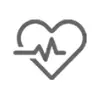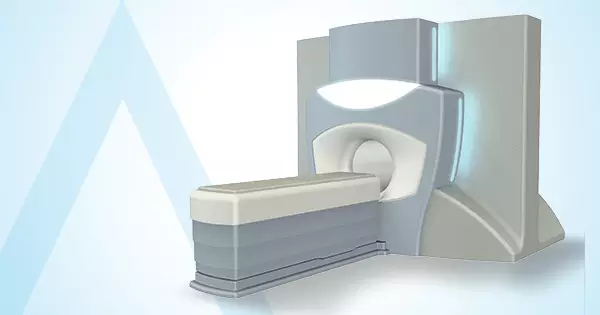Current data on allergy demonstrate that the prevalence of allergy has increased. According to various resources, allergic diseases are seen in one out of every five people and they are included in globally important disease groups as they affect the quality of life.
Considering the characteristics of our country, it can be said that pollen and dust allergy, allergies related to insect bites and various foods are common. In addition, allergic diseases such as angioedema, urticaria, atopic dermatitis are among the prevalent diseases.
The first step in treatment of allergic diseases is to determine the factors causing allergic reactions and types of these allergic reactions. Then, treatment can be started by related physicians by taking the patient’s general status of health and lifestyle into account.
Allergic diseases are diagnosed and treated at Acıbadem Healthcare Group.
What Is Allergy?
Overreaction of the immune system against a foreign substance like pollen, bee venom, pet dander or a food that does not cause reaction for most people is called allergy.
Under normal circumstances, immune system produces the substances called antibodies to fulfill its defense function against harmful substances. However, in allergic individuals, immune system starts producing antibodies that define a certain allergen as harmful even if it is actually not. Therefore, the reaction of immune system may cause hyperemia and swelling on skin, sinuses, airways or digestive system when the individual contacts the allergen.
Severity of allergies shows interpersonal differences in a broad range from a mild irritation to anaphylaxis. Allergies are potentially life threatening emergencies. Although most types of allergy cannot be completely treated, there are some treatment methods that help alleviating the sings of allergy.
There are numerous symptoms of allergy including the ones that are not life-threatening but may cause discomfort and impair the quality of like such as itching, redness of eyes, sneezing, runny nose and rashes and the ones that are potentially life-threatening such as swelling in walls of airway and secondary inability to breath.
What Are Causes of Allergy?
Allergy develops when the immune system accidently perceive a normally harmless substance as a dangerous invader. The immune system produces antibodies that are ready to attack the related allergen. When the individual is exposed to the allergen, these antibodies may release a series of chemicals special to immune system that cause allergy symptoms such as histamine . Common allergens include;
- Pollens
- Animal dander
- Mite and allergens in air like mold,
- Peanut
- Pine nut
- Wheat
- Soybean
- Fish
- Shellfish
- Some foods like eggs and milk,
- Insect bites like bee, wasp or bumblebee sting. However, severity of allergic reaction differs for each individual.
Risk of allergy is higher for children with familial history of allergic diseases such as hay fever, urticaria, eczema and asthma.
What Are the Possible Complications Caused by Allergy?
Even a single allergy increases the risk of various allergy related medical issues such as anaphylaxis, asthma or respiratory tract disorders. Risk of anaphylaxis , which is a serious allergy related reaction, is higher for individuals with severe allergy.
Foods, medications, insect bites are among the most common trigger factors of anaphylaxis. Risk of asthma, which is an immune system reaction affecting the respiratory tracts and breathing, is higher for individuals with allergies. In most cases, asthma is triggered with exposure of an allergen in the environment and this condition is called allergic asthma . Individuals with hay fever or asthma are more likely to develop sinusitis, ear or pulmonary infections.
How Is Allergy Prevented?
Although methods for preventing allergic reactions differ depending on the type of allergy, there are several common methods in general.
Avoiding the known triggering factors: It is crucial to try avoiding the triggering factors even if the signs of allergies are under treatment. For instance, individuals with pollen allergy should prefer staying indoors and keeping the windows and doors closed in spring when the amount of pollen is high. Individuals with mite allergy should frequently clean their houses, wash the bed clothes and remove the dust with vacuum cleaner.
Keeping a diary: Keeping a diary to see the activities, consumed foods, time of symptoms and factors alleviating the symptoms is useful while trying to determine what causes or aggravates the allergic symptoms. This may help the physician and individual determine the triggering factors.
Wearing medical alert bracelets: Individuals with serious allergic reactions should wear an alert bracelet or necklace showing the related information. Therefore, it will be possible to inform the people around the individual regarding the serious allergy in case of an allergic reaction that disables the individual and hinders communication.
What Are the Allergy Symptoms and Types?
Substance related allergy symptoms may affect respiratory tracts, sinuses and openings into nasal cavity, skin and digestive system. Severity of allergic reactions may range from mild to severe. In some serious cases, allergies may trigger a life-threatening reaction called anaphylaxis. Each allergy types show unique signs.
Colloquially known as hay fever, allergic rhinitis demonstrate itself with symptoms and signs including sneezing, discharge in nose, eyes or palate, nasal congestion and watery, red or swollen eyes called conjunctivitis.
Signs and symptoms of food allergy include tingling in mouth, swollen throat, tongue, lips or face, hives or anaphylaxis. Drug allergy may cause hives, itching and rash on skin, swollen face, shortness of breath or anaphylaxis.
In allergies caused by insect bites or bee stings, a large swollen area (edema), generalized itching or hives on the body, cough, tightness in chest, wheezing or shortness of breath or anaphylaxis may develop.
Atopic dermatitis, which is an allergic skin disorder and also known as eczema, may cause itching, redness, flaking and peeling on skin.
What Is Anaphylaxis?
Some allergy types including food allergy and allergies against insect bites may trigger a sudden, severe and serious reaction called anaphylaxis. Directly threatening the human life, anaphylaxis is a medical emergency and may cause shock.
Signs and symptoms of anaphylaxis include loss of consciousness, hypotension, severe shortness of breath, skin rash, dizziness, rapid and weak pulse, nausea and vomiting. When not intervened accurately, anaphylaxis may cause anaphylactic shock and death.
Individuals who think they show an allergic reaction and do not achieve sufficient benefit and relief with over-the-counter allergy medications should consult a physician for allergy exam . Individuals demonstrating signs of allergy after starting using a new medication should immediately seek medical attention.
Individuals who have a severe allergy attack or history of signs and symptoms of anaphylaxis may need to consult a physician. Evaluation, diagnosis and long-term management of anaphylaxis are not simple; therefore, consulting a physician who is specialized in allergy and immunology is probably the best approach.
In case of severe allergic reaction –in other words, anaphylaxis- emergency medical help should be sought. Calling emergency number 112 may help receiving medical aid faster.
Allergy Test and Diagnosis
The physician first asks various, detailed questions about the problem and symptom to understand whether the individual has allergy. Physical examination is performed and the individual is asked to keep a detailed diary to determine signs and potential triggering factors.
In case of food allergy , the physician asks the individual to keep a detailed diary about the consumed foods and asks whether the individual has stopped consuming suspected foods during allergy exam . Apart from these, there are several tests that may be recommended by the physician. These tests may give false positive or false negative results.
The first one of these tests is skin test . During this test, a healthcare professional opens small holes on the skin, drip micro amounts of protein fluids containing potential allergens on these holes and marks the contents of these drops. The drops, containing substances that the individual is allergic to, will cause local lump-like swellings on the body.
The second test is a blood test . Generally called as radioallergosorbent test or ImmunoCAP test, specific IgE (SIgE) blood test measures the amount of antibodies causing allergies that are called immunoglobulin E and antibodies in blood circulation.
If it is suspected that the problem is caused by a reason other than allergy, the physician may rule out other medical possibilities by ordering other tests.
Treatment of Allergy
The most important step for preventing allergic reactions and alleviating the symptoms is to avoid the allergens. Drugs that can be used depending on the type of allergy may help reducing the immune system reaction and alleviating the symptoms. The physician may recommend over-the-counter or prescription drugs, antihistaminic tablet or syrup, nasal spray or eye drops.
The physician may also recommend allergen immunotherapy for severe allergies that cannot be completely alleviated with other treatment methods. This treatment usually includes injection of a series of purified allergen extracts for several years. Another form of immunotherapy is a sublingual tablet that is placed under the tongue until it dissolves completely. Sublingual tablets are generally used to treat some pollen allergies.
Adrenaline injections may be needed in case of a severe allergic reaction. Adrenaline may reduce the allergic symptoms until emergency treatment is provided.
Lifestyle Changes to Manage Allergy
Some allergy symptoms can be managed with home remedies. Sinusitis and hay fever symptoms generally regress after rinsing the sinuses with a saline solution (a mixture of salt and water).
Symptoms of indoor allergies can be regressed by frequently washing the bed clothing and stuffed toys with hot water, keeping the humidity low in the area, using a vacuum cleaner with a fine filter like high-efficiency particulate air (HEPA) filter and preferring a bare floor instead of using carpets at home. Therefore, exposure to both mites and pet dander can be prevented. Symptoms of mold allergy can be prevented by decreasing the humidity in humid areas like bathroom and kitchen with ventilating fans and dehumidifiers.
![Altunizade Hospital]() Altunizade Hospital
Altunizade Hospital![Maslak Hospital]() Maslak Hospital
Maslak Hospital

















